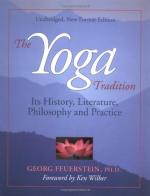|
This section contains 11,243 words (approx. 38 pages at 300 words per page) |

|
SOURCE: Dolin, Kieran. “Freedom, Uncertainty, and Diversity—The Critique of Imperialist Law in A Passage to India.” In Fiction and the Law: Legal Discourse in Victorian and Modernist Literature, pp. 169-92. Cambridge: Cambridge University Press, 1999.
In the following essay, Dolin explores A Passage to India as Forster's critique of British imperialist law and specifically of the policy of “Anglicization.”
English law and English literature were closely, yet variously connected during Britain's imperial domination of India. Anglo-Indians—the English who lived and worked in India—have been enrolled in the “configuration of law and letters” traced throughout this study: the first English judge at Calcutta was the poet and Oriental linguist, Sir William Jones; the nineteenth-century administrator, Sir Alfred Lyall, was a poet and critic. Both men were admired by E. M. Forster, not only for their literary avocations, but for their interest in Indian culture, a rare combination...
|
This section contains 11,243 words (approx. 38 pages at 300 words per page) |

|


